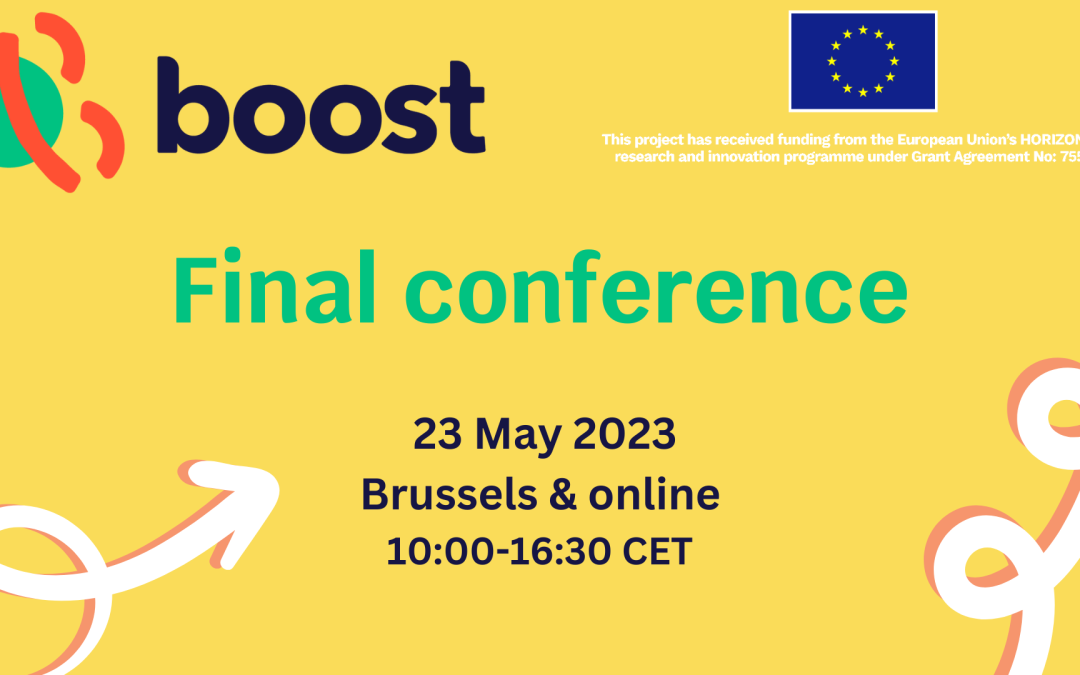School-based Social and Emotional Learning (SEL) programs have proven effective in increasing social well-being and academic achievement in children. At the beginning of 2018, the BOOST project set out to develop, implement, and test a new, systematic SEL-based population approach to promote mental health and well-being in primary school children. Now, it is time to close off and make up the balance; how did we do and what did we learn?
The 2022 Health at a Glance report showed almost half of young Europeans report unmet needs for mental health care, and the number of young people reporting depression symptoms in several EU countries more than doubled during the COVID-19 pandemic. Mitigating these effects requires a shift of prioritisation towards prevention: to tackle behavioural and environmental risk factors and have more ambitious actions on mental health promotion. Insights from the BOOST project will demonstrate how integrating SEL programs into primary school curricula can play a significant role in this.
Unprecedented circumstances caused by the COVID-19 pandemic, such as prolonged school closures and social restrictions, challenged the original design of the BOOST project and complicated the implementation of the pilot phase. At the same time, these conditions gave rise to unique opportunities for studying the effects of COVID-19 measures on primary school children and school climate.
At the BOOST final conference on 23 May 2023 from 10:00-16:30 in Brussels, the consortium will share experiences from the past 4,5 years and present the project’s main outcomes from three different European countries: Norway, Poland, and Spain. In particular, we will focus on two special sessions looking at the BOOST approach developed during the project and the COVID-19 impact on addressing mental health in primary schools. Finally, we will look at ‘what’s next’, and discuss the key takeaways from the project, in particular in view of the current EU strategic initiatives on mental health. Register now to join us!
Venue: Maison du Bois, Avenue des Volontaires 2, 1040 Brussels
AGENDA – moderation: Michele Calabrò, EUREGHA Director
10:00 – 11:00 Registration, coffee/tea, networking, exhibition
11:00 – 11:05 Welcome by European Commission
Sara Brazys, Scientific Programme Officer – H2020 & Horizon Europe at Health and Digital Executive Agency (HaDEA), HaDEA – BOOST Project Officer
11:05 – 11:15 Presentation of the BOOST project
Stine Hellum Braathen, BOOST scientific coordinator – SINTEF
11:15 – 11:30 Keynote MEP Maria Walsh, European People’s Party (Ireland)
11:30 – 12:30 Developing the BOOST Approach: formative study & design considerations
Panel discussion with:
Robert Florkowski, AWF Poznan (Poland) – BOOST Consortium Member
Agata Wiza, AWF Poznan (Poland) – BOOST Consortium Member
Gloria Azalde, SINTEF (Norway) – BOOST Consortium Member
Eva M. Romera Félix – University of Cordoba (Spain) – BOOST Consortium Member
Dr. Nils Lundin, Skåne Care Sund (Sweden) – BOOST Advisory Board Member
12:30 – 13:30 Lunch break, networking, exhibition
13:30 – 14:15 Research under COVID-19 conditions and insights from Norway, Spain, Poland
Interview Style discussion
Kjetil Gulsrud Lundemoen, Modum kommune (Norway) – BOOST Consortium Member
Ida Laudanska- Krzeminska, AWF Poznan (Poland) – BOOST Consortium Member
Olga Gomez Ortiz, University of Cordoba (Spain) – BOOST Consortium Member
14:15 – 15:15 BOOST into the future: vision beyond the project and learnings for EU policy making
Panel discussion
Åse Marit Hovden, Viken County (Norway) – BOOST Consortium Member
Elżbieta Leszczyńska, Adam Mickiewicz University (Poland) – BOOST Advisory Board Member
Johannes Theiner, European Parents’ Association – BOOST Advisory Board Member
Francesca Centola, Policy and Knowledge Officer, Mental Health Europe
Anna-Maria Giannopoulou, Deputy Head of Unit, Unit B2 “Schools and Multilingualism”, DG EAC, European Commission
15:15 – 15:20 Closing
15:20 – 16:30 Networking reception & exhibition
Discover more on our speakers’ backgrounds and expertise here.

